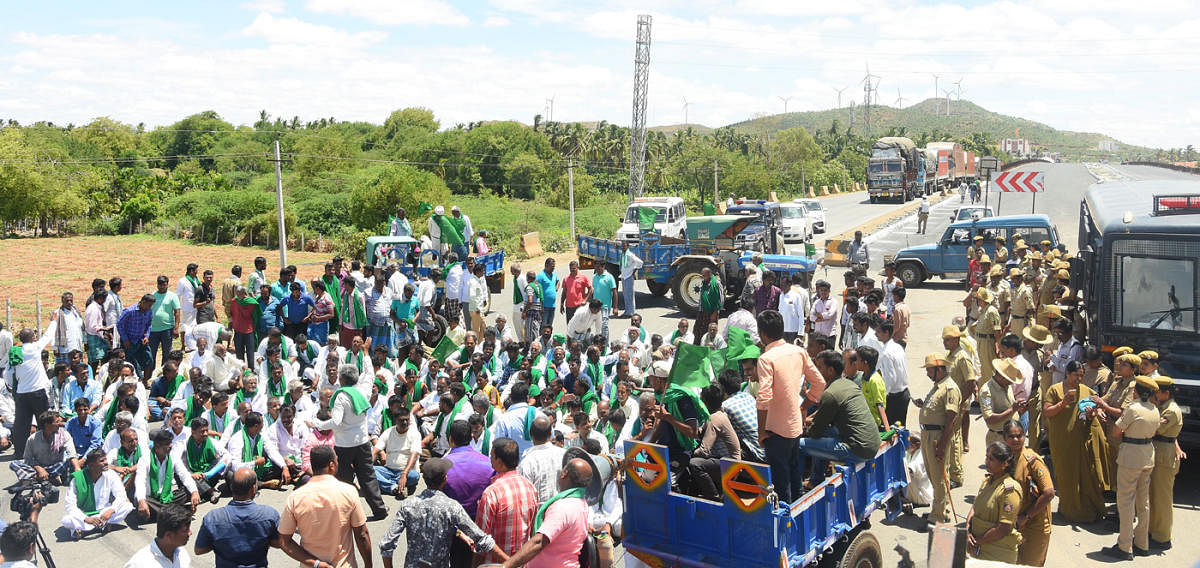
Farmers’ protest against the state government’s amendment to the Land Acquisition Act, 2013 disrupted traffic on highways for nearly an hour in key cities across the state, with commuters taking to rural roads and driving on farmland to escape the traffic snarls in some places.
Traffic was blocked on National Highways passing through Devanahalli, Nelamangala, Davangere, Raichur, Ballari, Koppal, Gadag, Dharwad and Belagavi. While the disruption ended in about 30 minutes in many of the places, it continued for nearly three hours in Koppal and some other cities. The Bengaluru-Mysuru road saw traffic jams in Ramanagar and Mandya for a while.
At Hosapete, Raita Sangha members sat on a protest on highway. The blockade forced many commuters to find alternative routes, with some riding on farmland to escape the snarls. Karnataka Rajya Raita Sangha president Kodihalli Chandrashekhar said hundreds of protesters were detained by police in several cities. “We seriously urge the government to drop the amendment, which will deny the land rights of the farmers. The changes in the bill seek to undo all the good reforms that the original act sought to bring. This is unacceptable,” he said.
The United Progressive Alliance government notified the law in 2014. However, the NDA-led government proposed to amend the Act in 2015 to introduce exemption for some projects, diluting the consent clause. The state governments have followed suit, further diluting the rules.
‘Anti-farmer move’
In February, the coalition government passed the Right to Fair Compensation and Transparency in Land Acquisition, Rehabilitation and Resettlement (Karnataka Amendment) Act, 2019. The changes seek to exempt five categories, including infrastructure, defence and PPP projects, from the strict clauses of the original act.
Chandrashekhar termed the government’s move “anti-farmer.” “The government calls itself farmer-friendly but is taking away the last thing that a farmer has. By diluting the clauses on consent, rehabilitation and the deadline for returning the unutilised land to its owner, it has made the law ineffective,” he said.
He said the state-level committee of the Sangha will soon meet to decide the next course of action.
“We have communicated our opposition to the government and also brought the problem to the public’s knowledge. The next step will only see an intense struggle for our rights,” he said.